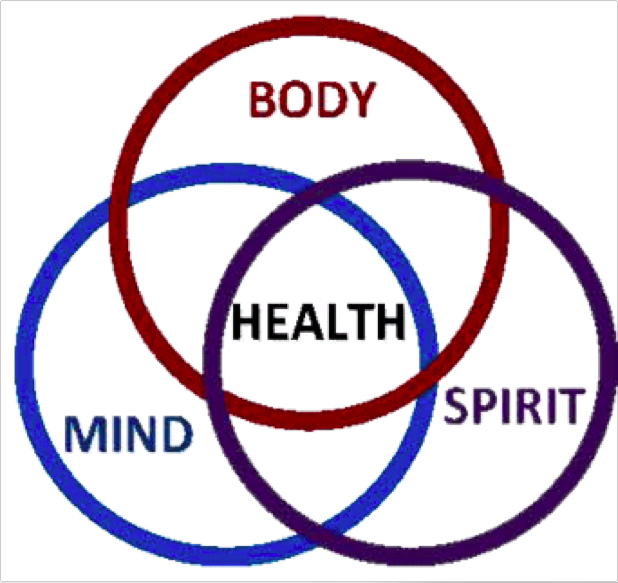Health(n): the condition of being sound in body, mind, and spirit.
Our health can be divided into three major dimensions:
 Physical Health refers to the condition of our physical body and its functioning. This is the most visible health dimension.
Physical Health refers to the condition of our physical body and its functioning. This is the most visible health dimension.
- Spiritual Health refers to the condition of our relationship with God in both public and private. Because of this duality, this dimension of health is both visible and invisible.
- Mental Health refers to the condition of our thought life and how it affects emotions and decisions. Because our thoughts reside in the mind, this dimension of health is the least visible.
All dimensions of health require effort on our part to achieve and maintain well-being.
Need to lose weight and get the cholesterol count down? Eat leafy green vegetables, increase physical activity, exercise portion control with meals, and consume sugars and fats in moderation. Requires effort, but achievable.
Need to strengthen relationship with God? Schedule daily quiet time with Him, read the Bible, go to church, fellowship with other believers, pray and fast, and apply Biblical principles in our daily living. Requires effort, but achievable.
But what can we do if we’re living with anxiety, depression, addiction, trauma, schizophrenia, or any other mental health issue?
Unfortunately, many Christians do not seek professional help for mental health concerns. Among believers, as with non-Christians, there is a lot of shame attached to living with and seeking help for mental illnesses. In fact, according to a recent study, nearly 50% of the Christians polled believe that prayer and Bible study ALONE can overcome mental health concerns such as depression, bipolar, and schizophrenia. However, this perspective is incorrect. Mental health illnesses and suicide rates continue to be on the rise and they do not discriminate: Christians are just as susceptible to these issues as non-Christians.
 So, what to do if experiencing mental health concerns?
So, what to do if experiencing mental health concerns?
Two things are crucial for believers:
- Seek Professional Help: sometimes we need to go beyond the “just pray about it” mentality. God highly recommends matching our prayer life with actions (ref. James 2:17 NIV). Is it enough to just pray for a better relationship with God? No. God wants us to pray AND actively seek Him through Bible reading, church attendance, Christian fellowship, etc. So why not implement the same faith-and-deeds principle with mental health illnesses?
So, after bringing the mental health concern before God in prayer (ref. 1 Kings 22:5 NIV), go speak to someone. This is best accomplished with a person who is trained in diagnosing and treating mental health illnesses. Sometimes, this can be a pastor who has appropriate mental health training. Other times, this is a professional counselor/therapist. Yes, speaking to a friend or spouse may help, but only a trained mental health professional can diagnose and treat mental health illnesses. Remember, God is not opposed to wise counsel.
- Remain Close to God: while seeking help from a professional counselor/therapist, continue to nurture our relationship with God. This may be difficult to do when experiencing the stress of a mental health illness, but an intimate relationship with God and a supportive church family, when paired with therapy, increases positive functioning and the likelihood of overcoming (or appropriately managing) mental health conditions. Satan will try his best to pull us away from God during moments of crisis by creating doubt (ref. Genesis 3:1), but do not allow him to use mental health issues to create a wedge between us and God.
While a healthy spiritual life may help us cope better with life’s trials and mental illnesses, it does not absolve us from ever experiencing them. Moreover, experiences with mental health issues does not make us weak nor does it make us less of a Christian. If anything, it reveals the humanity in us all. As the temple of the Lord, we are sacred (ref. 1 Corinthians 3:17b). Anything sacred requires special care. Special care to the body, spirit, and mind.
Common Signs of Distress
 Low mood (e.g., sad, agitated, irritated)
Low mood (e.g., sad, agitated, irritated)- Loss of motivation
- Inability to focus on important tasks (at home, school, work, church)
- Sleeping too little or too much
- Eating too little or too much
- Physical pain (e.g., head aches)
- Frequent illnesses (e.g., colds, flu)
- Fatigue/Tiredness
- Overwhelmed
- Withdrawing from social relationships (e.g., friends and spouses)
- Poor attendance and performance (at home and/or school)
- Alcohol and drug abuse
- Thoughts of suicide (or homicide) *
When experiencing any of these symptoms for a sustained amount of time, seek pastoral and/or professional counseling as soon as possible.
*See pastoral and/or professional counseling IMMEDIATELY
IMPORTANT Both men and women can experience signs of distress. However, women are more likely to seek professional help. Therefore, reach out to fellow brothers and sisters when we see signs of distress (ref. Ecclesiastes 4:10,12)
Resources
Suicide Prevention Lifeline 1-800-273-8255 Available 24 hours/day https://suicidepreventionlifeline.org/
National Sexual Assault Hotline 1-800-656-4673 Available 24 hours/day
https://www.rainn.org/about-national-sexual-assault-telephone-hotline
Alcohol Anonymous (AA) Find a meeting near you!
Miami Dade County https://aamiamidade.org/
Broward County http://www.aabroward.org/search.asp
Narcotic Anonymous (NA) Find a meeting near you! http://www.namiami.org/
American Association for Christian Counselors (AACC) Find a Christian counselor near you! https://www.aacc.net/
Switchboard of Miami Locate counseling agencies within the South Florida community http://www.mycommunitypt.com/switchboardofmiami/index.php/component/cpx/
Tips: Searching for Therapists
- Check the licenses Examples of appropriate licenses are:
- Licensed Mental Health Counselor (LMHC)
- Licensed Clinical Social Worker (LCSW)
- Board Certified Christian Counselor (BBCC)
- Insurances Accepted Check with your health insurance to see if mental health services are part of your plan
- Cash Only If you do not have insurance, or simply do not want to use your insurance for privacy purposes, payment for counseling services is usually based on income
- Affordable Therapy Therapists who work through private practices tend to cost more. However, community mental health agencies are federally mandated to provide sliding scale fees (i.e., payment is based on what a person can afford). In addition to sliding scale fees, most community mental health agencies are funded by external organizations (i.e., South Florida Behavioral Health) that set aside large sums of money that allow individuals access good therapeutic care for extremely low costs (and sometimes for free!).

